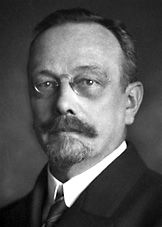
You
can argue all night about who deserved and didn't deserve the Nobel
Peace Prize for just about any year. But if you restrict the debate to
science prizes, you'll find research that turned out to do more harm
than good, experiments and conclusions that were just plain wrong, and
scientists who turned out to be bad news all around. Take the case of
Johannes Andreas Grib Fibiger, who won the 1926 Nobel Prize for
Physiology or Medicine.
In 1907, this Danish scientist
found that he could induce abnormal cell growth in rats by feeding them
cockroaches that were infected with a species of worm he called
Spiroptera neoplastica. Fibiger concluded that the worms caused cancer.
To appreciate how significant the discovery seemed at the time, it’s
important to understand that many doctors were furiously hunting a
single cause of cancer. Some thought the disease was programmed into the
body in embryonic cells. Others believed inanimate external factors
triggered uncontrolled cell division. (English physician Percivall Pott
observed in the 18th century that chimney sweeps were shockingly likely
to suffer scrotal cancer.) The infectious theory was also quite popular,
and its adherents pushed hard for recognition of Fibiger’s
breakthrough. He received 16 Nobel Prize nominations beginning in 1922.
Did he deserve the Nobel? Well, hey, did
you ever hear that worms cause cancer? Read his story and those of several other prize winners at
Slate.
 You
can argue all night about who deserved and didn't deserve the Nobel
Peace Prize for just about any year. But if you restrict the debate to
science prizes, you'll find research that turned out to do more harm
than good, experiments and conclusions that were just plain wrong, and
scientists who turned out to be bad news all around. Take the case of
Johannes Andreas Grib Fibiger, who won the 1926 Nobel Prize for
Physiology or Medicine.
You
can argue all night about who deserved and didn't deserve the Nobel
Peace Prize for just about any year. But if you restrict the debate to
science prizes, you'll find research that turned out to do more harm
than good, experiments and conclusions that were just plain wrong, and
scientists who turned out to be bad news all around. Take the case of
Johannes Andreas Grib Fibiger, who won the 1926 Nobel Prize for
Physiology or Medicine.
No comments:
Post a Comment